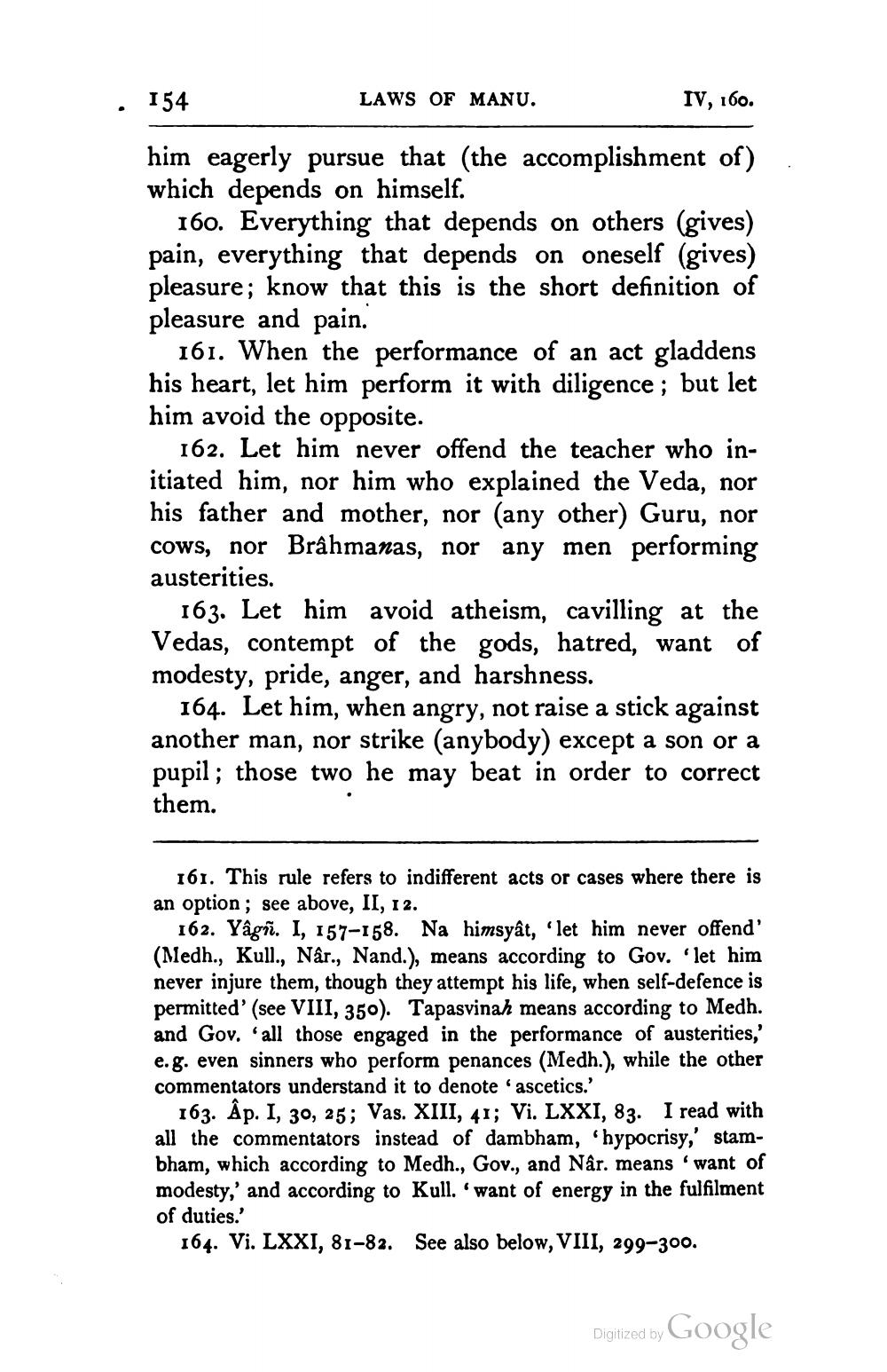________________
· 154
LAWS OF MANU.
IV, 160.
him eagerly pursue that the accomplishment of) which depends on himself.
160. Everything that depends on others (gives) pain, everything that depends on oneself (gives) pleasure; know that this is the short definition of pleasure and pain.
161. When the performance of an act gladdens his heart, let him perform it with diligence; but let him avoid the opposite.
162. Let him never offend the teacher who initiated him, nor him who explained the Veda, nor his father and mother, nor (any other) Guru, nor cows, nor Brahmanas, nor any men performing austerities.
163. Let him avoid atheism, cavilling at the Vedas, contempt of the gods, hatred, want of modesty, pride, anger, and harshness.
164. Let him, when angry, not raise a stick against another man, nor strike (anybody) except a son or a pupil; those two he may beat in order to correct them.
161. This rule refers to indifferent acts or cases where there is an option; see above, II, 12.
162. Yâgñ. I, 157–158. Na himsyât, 'let him never offend' (Medh., Kull., Når., Nand.), means according to Gov. let him never injure them, though they attempt his life, when self-defence is permitted' (see VIII, 350). Tapasvinah means according to Medh. and Gov. "all those engaged in the performance of austerities,' e.g. even sinners who perform penances (Medh.), while the other commentators understand it to denote 'ascetics.'
163. Âp. I, 30, 25; Vas. XIII, 41; Vi. LXXI, 83. I read with all the commentators instead of dambham, 'hypocrisy,' stambham, which according to Medh., Gov., and Når. means want of modesty,' and according to Kull..want of energy in the fulfilment of duties.'
164. Vi. LXXI, 81-82. See also below, VIII, 299-300.
Digitized by Google




